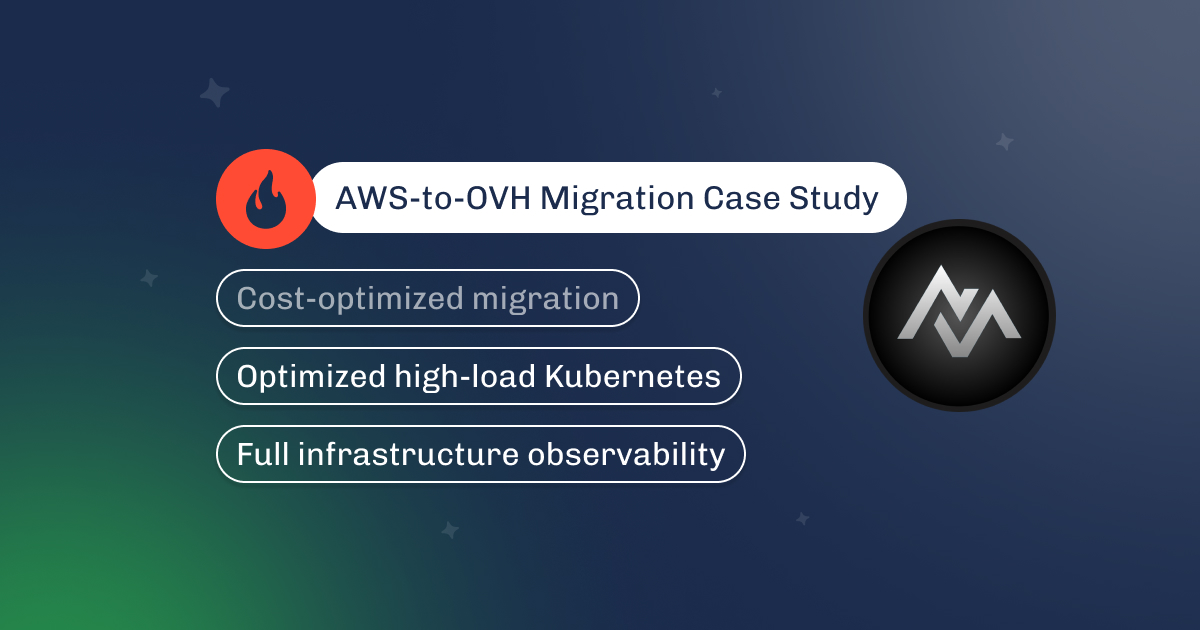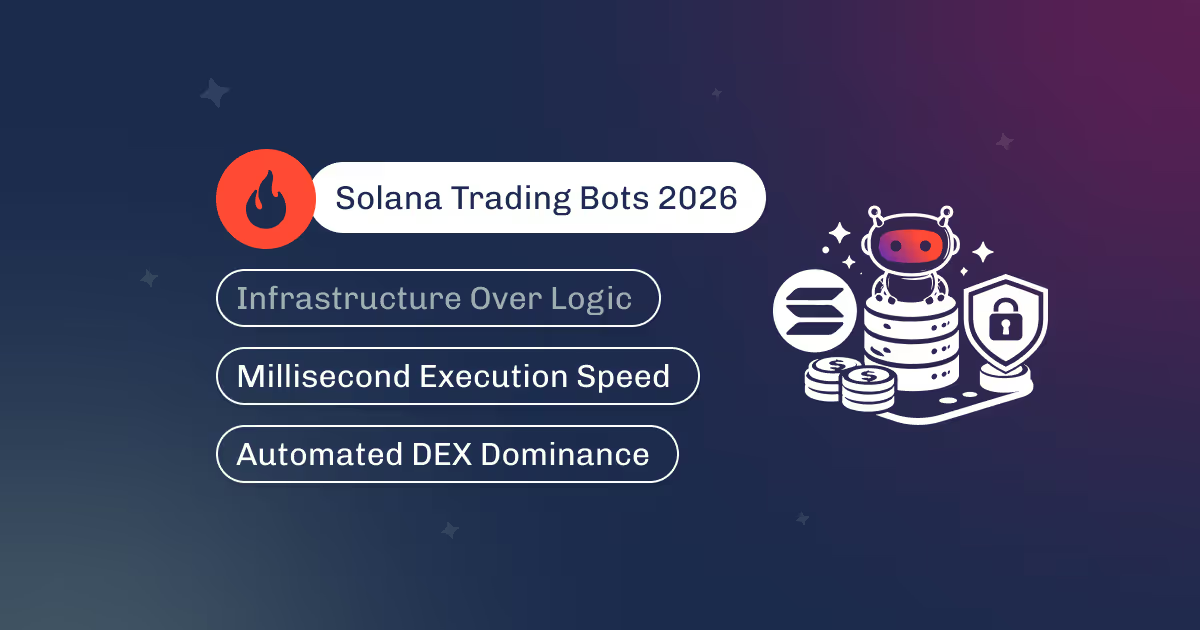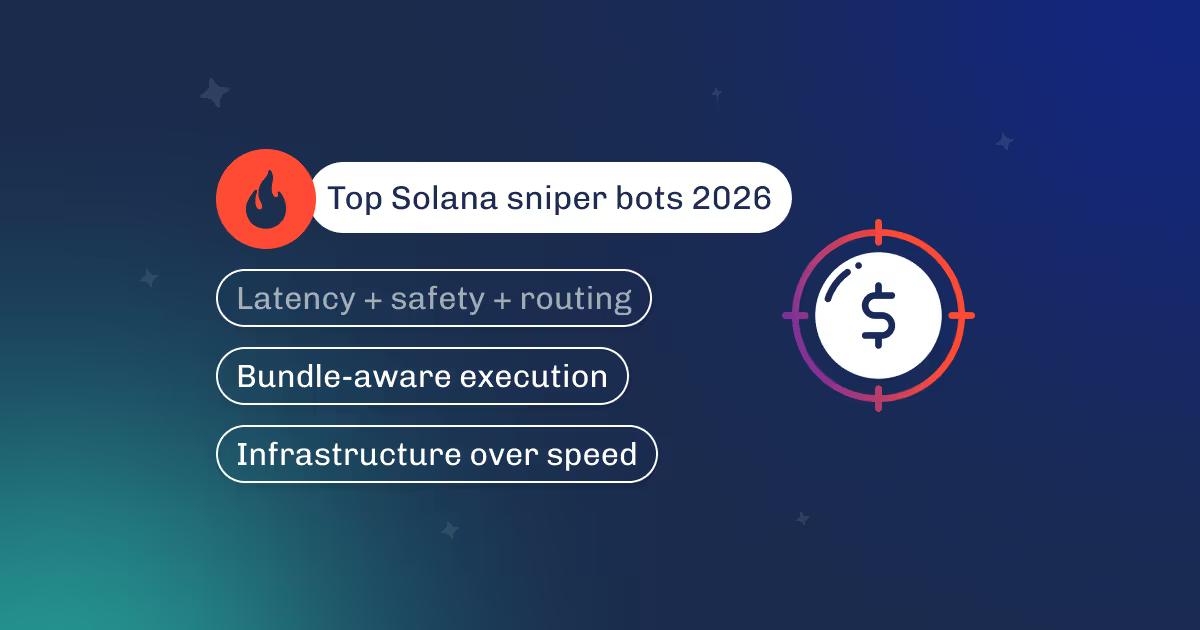
Written by:

5

Date:

Updated on:
.avif)
Hey, it’s DevOps time! Expanding your team while experiencing a lack of expertise in DevOps is a non-trivial task for any blockchain project. You’re always in a hurry, your team may experience burnout, and you have to grow further no matter what. Now, it’s time to spice up your project with a pinch of DevOps skills.
To ease your project’s pains of growing up, we prepared our short guide on choosing the right approach to adding blockchain DevOps experts to your team. We asked our latest partners, clients, and fellow DevOps providers about cases and best practices they witnessed regarding blockchain team growth. And here’s what we’ve got.
The point of security can become a bone in the throat for any C-level. DevOps can automate security audits and penetration testing to proactively identify and fix weaknesses. For instance, a custom-built script can continuously scan smart contracts for vulnerabilities like buffer overflows or reentrancy attacks.
And any security breaches may cost a whole budget for a project. Hiring a DevOps or finding a DevOps service provider—is much cheaper.
Blockchains don’t exist in a complete vacuum, they interact with other systems. DevOps engineers can design and implement APIs and integrations to ensure smooth data flow. Imagine an API that allows your blockchain to seamlessly connect with a legacy customer database to save some exquisite data.
Without integrations, your project will be more like a prototype than a viable productive system. Besides, selecting the right APIs and being able to create new ones are irreplaceable skills of DevOps engineers.
DevOps automates the deployment process, minimizing downtime and human error. An automated deployment pipeline (CI/CD included) can trigger tests, build the application, and deploy it to the production environment upon code commit.
Even if your dev team deals with these tasks easily, they consume a big part of their time that could be spent more efficiently. Delegating it to dedicated DevOps changes the play from head to toe.
Hurray, your project is about to experience a high load which means you’re popular! But why your tech team is not so happy? Mostly because the high transaction volume makes your whole infrastructure start crumbling. A DevOps team can design a scalable and high-performing infrastructure using cloud-based, bare metal, or hybrid solutions and optimize your network for peak performance. Save your tech team from headaches, minimizing latency and off-time during any conditions.
.avif)
Your project stands on managing nodes, miners, and validators. DevOps specialists with blockchain expertise can streamline these tasks and ensure network stability. Everything needs care—updating, keeping nodes healthy, backup, and so on. This order will take your project to completely another level of organization and efficiency.
So you see, DevOps is a skillful necessity for your blockchain project. Even one problem deserves the attention of a dedicated specialist. But how many specialists do you need? What kind of skills should they have? How will they work integrated with your current team?
We’ll try to give you a quick answer here.
Here, you can go two main paths: consultancy or services.
While consultancy involves you in the world of tools, approaches, and processes of DevOps, the implementation will be still your responsibility. With a DevOps consultant, you can control the work of other DevOps specialists, train your inner team, or forge a separate solution for the blockchain infrastructure or architecture of your project.

The services side is always about satisfying the demand, so first, prepare everything to explain what exactly you want from DevOps. And be sure it gets into the Scope of Work document as exactly as possible, because after collecting the estimates from potential service providers, you’ll have to make a decision.
Here are some main points you have to take into account:
It’s a common practice for companies to build partnerships with DevOps providers, so it’s more than just service shopping this time. You have to invest not only money in this cooperation but also your dedicated involvement and readiness to support changes. Each part of your in-house team should deserve the same, but we know that it’s only in theory. We’ll discuss the real-life differences below.
Building an in-house blockchain DevOps team requires an ability to plan and perform in the long run. You need to gather the right people, with complementary skills and personalities, with the right tools in hands for a long enough time to emerge and stabilize the wholesome changes. Here are some untrivial advice for you if you are thinking about this path:
|
Involve stakeholders early Engage key stakeholders from development, operations, and business units to ensure alignment and buy-in to build a DevOps team that will work for everyone. |
Promote continuous learning Invest in training and development programs to keep your team updated with the latest DevOps and blockchain technologies. |
|
Start small and scale Begin with a pilot project to test and refine your toolchain before scaling to larger adventures. |
Ensure compatibility Verify that selected tools integrate seamlessly with your existing systems and support blockchain requirements. |
|
Set measurable objectives Define key performance indicators (KPIs) to track the progress and success of both separate specialists and a new department in general. |
Shift left security Incorporate security practices early in the development process to identify and address issues before they reach production. |
|
Look for T-shaped skills The best candidates from our experience have deep expertise in one area (e.g., blockchain development) and broad knowledge across other domains (e.g., CI/CD, cloud infrastructure). Hire such experts with a light heart. |
Leverage real-time data Utilize real-time monitoring and analytics to proactively address issues and optimize performance. |
|
Conduct post-mortem reviews Analyze incidents to identify root causes and improve future processes and practices. |
Both yes and no. We have a tendency, some common rules, but they are also broken with extremely successful examples of doing the opposite. So we’ll take a look at both. The classic rules for SMEs and enterprises look like this:
|
Factor |
Startups & Small Businesses |
Large Enterprises |
|
Resource availability |
Limited DevOps and blockchain expertise |
Dedicated in-house resources available |
|
Team building costs |
Lower (leverage existing DevOps team) |
Higher (hiring and training dedicated blockchain DevOps engineers) |
|
Cost of expertise |
Potentially lower (outsourced specialists focus on specific needs) |
Potentially higher (hiring full-time employees) |
|
Flexibility |
Easily scale expertise up or down |
Slower to adapt team size to project needs |
|
Control |
Less direct control over the development process |
More control over internal team and processes |
|
Focus |
Faster time-to-market with outsourced expertise |
Focus on long-term strategic blockchain initiatives |
|
Suitable for: |
Cost-sensitive projects, rapid prototyping |
Complex, long-term projects requiring deep integration |
|
Example |
Building a proof-of-concept blockchain application |
Implementing a blockchain-based supply chain management system |
Regarding the “rebelling” variants, they are those:
For example, a niche consulting firm uses blockchain technology to build a secure, tamper-proof platform for intellectual property management. Due to the highly specialized nature of the project, readily available outsourced talent might not possess the deep understanding of both the industry and blockchain tech needed.
Why it works: Building an in-house team ties up developers and domain experts within the firm. Thus, the solutions they craft are magnificent and make this company highly competitive in their niche.
Let’s say, a multinational corporation wants to implement a blockchain-based supply chain management system across various global locations. Building an internal team with expertise in regional regulations, diverse blockchain platforms, and specific supply chain processes could be complex and expensive.
Why it works: Outsourcing specific DevOps tasks, like infrastructure management for different regions, allows the company to leverage the expertise of a specialized provider who can navigate complexities like regional regulations and varying blockchain infrastructure needs. Fewer mistakes made—less additional expenses.
A mid-sized company develops a public blockchain application targeting a global audience of music admirers. They require a robust CI/CD pipeline and ongoing security audits.
Why it works: This company might choose a hybrid approach. They can build an in-house team to handle core DevOps tasks for the application and outsource security audits and specific infrastructure management needs to external specialists. This allows them to access deep security expertise while maintaining control over core development.
There are more than enough variations of solutions you may choose from.
The main sign of making the right choice is that your in-house team accepts changes while understanding and following your goals. No matter if you choose outsourcing, hiring, or doing both, it’s still all about people’s communication—the way you see it should become a picture in the minds of all your colleagues.
Or contact us to discuss any matters related to your infrastructure. Our solely Senior blockchain DevOps team will be ready to help you.






